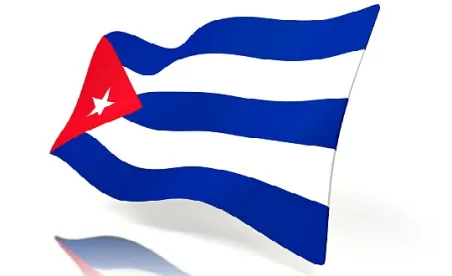As we have previously reported on the growing fear that the Trump Administration would roll back President Barack Obama’s plan to normalize relations with Cuba. Then-candidate Donald Trump was calling President Obama’s deals with Cuba “one-sided” and beneficial “only [to] the Castro regime.” Last week Friday, at an event at the Manuel Artime Theater in Miami, President Trump officially announced his Administration’s new public policy towards Cuba and fulfilled a campaign promise.
 President Trump’s speech culminated in the issuance of a National Security Presidential Memorandum and an accompanying White House Fact Sheet on the U.S. Policy toward Cuba. In sum, President Trump’s directive:
President Trump’s speech culminated in the issuance of a National Security Presidential Memorandum and an accompanying White House Fact Sheet on the U.S. Policy toward Cuba. In sum, President Trump’s directive:
(a) Ends economic practices that “benefit the Cuban government” by prohibiting most economic activities with the Cuban military conglomerate, Grupo de Administración Empresarial (“GAESA”). This change is most likely to affect the hotel and tourism industry sectors, since these are the industries said to be largely controlled by GAESA. A list of companies that will be on the “blacklist” will be issued by the State Department at a later date.
(b) Adheres “to the statutory ban on tourism to Cuba,” by amending regulations related to educational travel (i.e., by ending individual people-to-people travel) and enforcing the strict record keeping requirements related to travel to Cuba.
(c) Opposes any efforts in the United Nations or other international forums to lift the embargo on Cuba.
(d) Supports the expansion of internet services and free press in Cuba by convening a task force that will work with non-governmental organizations and private sector entities to examine the challenges and opportunities in those areas.
(e) Keeps in place the Obama Administration’s elimination of the “Wet Foot, Dry Foot” policy.
(f) Ensures that engagement with Cuba in general is advancing the interests of the United States.
As explained in the new FAQs issued by the U.S. Department of the Treasury, the policy changes will not go into effect until the Treasury Department and the U.S. Department of Commerce have finalized their new regulations. Importantly, the new Cuba policy changes will not have retro-active effect. Those travel arrangements and commercial engagements that were in place prior to the issuance of the upcoming regulations will not be affected.
Al Cardenas, who heads the Latin America practice group at Squire Patton Boggs and previously served as the former Chairman of American Conservative Union and former Chairman of the Florida GOP, explains: “Despite the emotional setting and rightful remembrance of the struggles of the Cuban people found in President Trump’s speech, which was focused on a Cuban exile audience, President Trump’s executive action preserves many of the changes made during President Obama’s Administration (some of which were outlined in President Obama’s 2014 Speech). For example, the respective embassies in Washington and Havana will remain open, the U.S. licenses issued to airlines and cruise line companies have been kept, efforts to expand direct telecommunications and internet access will continue, and the additional categories for travel to Cuba for the most part remain in place. While one-step back is the prohibition on U.S. travelers from staying at government-owed facilities, this should be a boon to the family-owned B&B’s and other rentals on the island. It remains to be seen whether there will be a significant drop off in tourist travel to the island.”
Viewed as a whole, President Trump is tightening some areas where improved economic relations with the United States could have benefitted some auspices of the Cuban Government.




 />i
/>i

